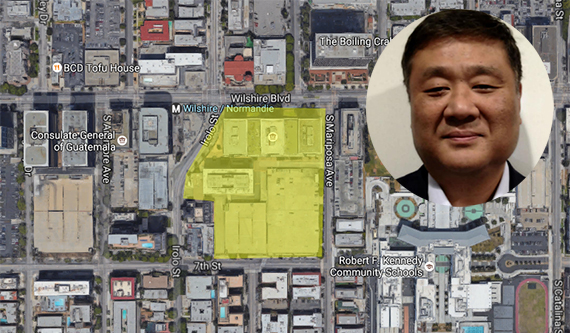Trending
What developments are exempt from Measure JJJ?

If you’re a multifamily developer currently in the entitlement process and your project requires a zone change, chances are you must oblige the requirements of Measure JJJ.
But there is at least one exception, which was clarified by a memo last week from Los Angeles Department of City Planning director Vincent Bertoni: Projects with a complete application that requested a vesting zone change, vesting tentative map, or vesting conditional use permit will be exempt.The applications for these vested developments must be deemed complete by City Planning on or before Dec. 13 in order to be exempt, the memo specified. It also effectively cleared projects with entitlements that were approved before the end of that business day.
City Planning decides what is “complete” in terms of vesting. The department has 30 days after an application is filed to notify the applicant about whether it is complete or missing certain materials. Sometimes planning officials will respond to an application within 24 hours, a City Planning assistant told The Real Deal.
This means that if a developer filed plans on Dec. 12 for a project that required a zone change and included a vesting tentative map request, the project could feasibly be exempt from JJJ if City Planning took only one day to acknowledge that the application was complete.
Most developers in the know, however, submitted plans well before December. Forty-four projects were submitted between August and September alone — that’s more than three times the average monthly filing between 2015 and 2016, according to a recent TRD analysis.
What exactly is a vesting application? In a nutshell, a developer can opt for a vested zone change rather than a zone change alone to protect the project from zoning policy changes that come after plans have already been filed.
“The [vesting application] has pretty much always existed,” said the planning assistant. “It’s tool for developers — and the public — to get a level of certainty that a project won’t be changed down the line.”
The municipal code dictates that an approved vested application “shall confer a vested right to proceed with a development in substantial compliance with the rules, regulations, ordinances, zones and officially adopted policies of the City of Los Angeles in force on the date the application is deemed complete.”
In other words, timing is key. An approved vested application will immunize the development from any future policy changes. But a vested application also requires more preparation.
A vested zoning change necessitates not only a site plan but also a hyper-specific rendering of the architectural plan that shows the nitty gritties of the project, including its driveways; locations of landscaped areas; walls and fences; and both pedestrian and car entrances.
Ever since zoning initiatives like JJJ and the Neighborhood Integrity Initiative emerged on the horizon, developers are now more likely to opt for vested applications than not, said the planning assistant, who spoke on the condition of anonymity.
One of Jamison Services’ latest projects in the pipeline, for instance, requested a vesting zone change with JJJ in mind, according to a source with knowledge of the project. The project, filed at the end of September, calls for 641 units and more than 18,000 square feet of commercial space at 3440 West Wilshire Boulevard. The application has since been deemed complete, the source said.
Jamison was just one of dozens of developers that took advantage of the vesting application opportunity in the face of JJJ, the source told TRD.
Such savviness projects from having to set aside up to 40 percent of units for affordable housing and hiring local workers at union-equivalent wages, as required under JJJ.




